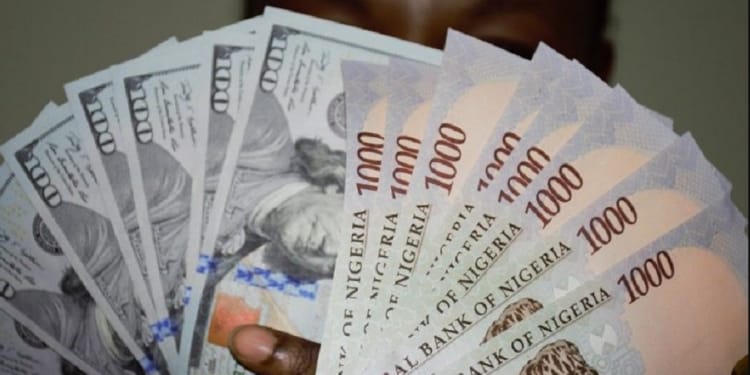The value of the naira opened the month of September on a positive note, appreciating by N5.48 or 0.38 per cent as the US dollar suffered a setback, hitting a five-week low on Monday, as investors looked ahead to a raft of U.S. labour market data this week that could affect expectations for the Federal Reserve’s easing path.
At the official end of the foreign exchange market, the value of the naira, which closed last week at N1,531.57 to the dollar, had appreciated by N5.48, or 0.38 per cent, by the end of trading activities on Monday, the first day of September.
The value of the naira on Monday sold at N1,526.09 to the dollar at the official end of the market, while on the parallel market, the naira also closed stronger at N1,535 to the dollar and N1,525 to the dollar on foreign transfer apps.
Against a basket of currencies, the dollar eased 0.15 per cent to 97.71, after hitting 97.534, its lowest level since July 28. It clocked a monthly decline of 2.2 per cent on Friday. The euro was up 0.22 per cent at $1.1707, while sterling rose 0.25 per cent to $1.3537. U.S. markets were closed for the Labour Day holiday on Monday.
Traders were also assessing Friday’s U.S. inflation figures, a court ruling that most of Donald Trump’s tariffs are illegal, and the president’s continuing tussle with the Fed over his attempt to fire Governor Lisa Cook.
Analysts said the U.S. economy is no longer outperforming as it did for much of the past decade, justifying a weaker dollar. Further signs of a softening labour market are expected to bolster that narrative.
“Severe weakness (in economic data) would point to an even more forceful Fed response than market pricing predicts,” Societe Generale economist Klaus Baader told Reuters.
“But if May/June weakness is revealed as a statistical mirage, rate cuts would seem unwarranted given the almost certain prospect of rising inflation over the next year or so.”




